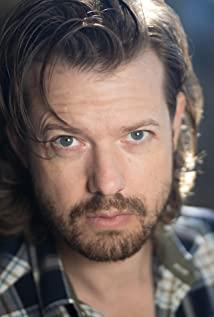In a sense, "Dunkirk" is like an inflection point in Nolan's work, heralding a new change in his creation - although perhaps this change may not be pleasing. But from another point of view, this movie Nolan has always wanted to make doesn't seem to be too different from his previous works. In short, tangled issues have been raised about Nolan as a director, and polarized opinions conflict back and forth, but it does not affect his creation. That in itself seems to hint at the director's schizophrenic side, but that division is self-contained in a graceful and easygoing way that is hard to choose.
This division of Nolan manifests itself in the conflict between the superb audiovisual language and cheap values in his films. On the one hand, he is a master of magic, and can play with audio-visual, story structure, rhythm and other elements to the point of being dazzling; There is no difference. He has used the three magic weapons of Hollywood: family is beautiful, love is great, and courage is precious. Of course, this is in line with mainstream values, but the warmth makes people suspicious and secretly deny it.
As a Hollywood director, Nolan is undoubtedly successful. Every time, he can always use his brilliant craftsmanship in exchange for commercial and word-of-mouth victory, but every time, he stops in the circle of commercial movies defined by Hollywood and never takes a step. Whether the expression of the film or the idea of the film is more important is something that fans and critics have been arguing about. It is not a great event (not to mention that there is no conclusion yet), but breaking through oneself is indeed something that creators cannot overcome. Kan, don't wait for you here, just lie there, and you will meet sooner or later.
And this time, Nolan used the replacement of the subject matter to achieve a breakthrough of his own. Although it is a bit too much to avoid, it can still be regarded as a sincere work. Not only sincerity to the audience, but also sincerity to yourself.
Nolan's work has always been full of spectacle. This sense of spectacle built on narrative timing and the illusion of editing has always been the most fascinating aspect of his films. And this time in "Dunkirk", he also unreservedly cast this magic. Different from the past, "Dunkirk" is a realistic film theme, and there is no way to imagine and imagine some worlds that do not exist. But under this proposition, Nolan still handed in a good answer, expanding the time and space of the movie through the cross collage between the three time and space, just like his previous magic tricks, it is confusing Yu was able to smile again.
The music from the movie still continues. Although many people criticize the ubiquitous music in the movie, I have to say that Hans Zimmer's creation this time is still very successful, not only the perfect combination of music and the rhythm of the story, but also the reasonableness of Shepard's tone. The use also makes the temperament of the film different from other war films, giving people a sense of excitement that is not inferior to action films. On the other hand, this kind of tight and ubiquitous music also just confirms the anxiety and dazed group mood during the Dunkirk retreat. So it's kind of a breakthrough in performance (which is a bit daring for a commercial film).
Out of devotion to film, Nolan still used 70mm film to make the film. Those very spectacle shots in the film, according to Nolan's temper, are still produced with almost no special effects involved. include
Using real Navy destroyers instead of computer 3D animation (CGI) to create naval battle scenes, more than 1,000 extras, IMAX cameras placed in the cockpit and wings of a real Spitfire, Let the cameraman and the actor float in the water together to shoot
etc. This old-fashioned approach instead gave the shots in the movie an astonishing "super special effect", which once made it difficult to distinguish the real from the fake, thus obtaining a novel viewing experience, like naked-eye VR.
In addition, Nolan's consistent Hollywood-style core is completely preserved here. The opening credits remind the audience of "they need a hope, they need a miracle", turning the entire film into a super-extended last-minute rescue, with seamless interlocking plot points and a weave between different time lines Breathless. So, too, the Hollywood-esque themes of love and justice at the end get a lot of validation—all of which makes the movie even look a bit like a theme movie. Nolan does not show any footage of the German army, focusing entirely on the 400,000 soldiers whose fate is lost on the coast of Dunkirk. But unlike "Atonement", the film's presentation of the Great Retreat is very dynamic and organic, not the gloomy cloud in the past impression at all, and some shots even show a heroic beauty, so let the final success change Taken for granted and uninteresting - admittedly, a very important turning point in World War II, but through this story we only see love and justice. This seems to have nothing to do with the bloody dark side of human civilization behind World War II, so it lacks authenticity at this point. The shortcomings of Hollywood movies that have always been criticized are also here: they are too shallow to think, so they are suspected of being sold.
But we can still see a change in Nolan. Although she is also a heroine without any important role, this time, she is finally no longer an absolute hero. The proportion of group portraits is more evenly distributed due to structural reasons, but it also makes each image slightly thinner. Realism and stories based on real events make the texture of the film different from Nolan's previous films, and in some places it is reminiscent of old movies like "Party Dissent". On the screen, the complex and colorful visual elements disappear behind the blockbuster scenery. This subtraction expands the sense of time and space, and complements the story itself. However, this may be where many Nolan fans will be dissatisfied with this.
In general, "Dunkirk" still retains the advantages of Nolan's technology and design, but also presents different characteristics from the past. To explore the fundamentals, Nolan is still the same Nolan. For creators, changes are happening constantly, which is normal. The Hollywood sweetheart director who likes to conjure magic still brings a commercial film that conforms to mainstream values and is watchable this time. In terms of ideological value, it is naturally not comparable to war films like "Apocalypse Now" and "Full Metal Jacket"; the familiarity of the audience is also incomparable to "Saving Private Ryan" and "Pearl Harbor". But those are the movies that I have seen after all. Nolan's greatness this time is that he has made a movie that is similar to these war movies, and has some dominance in it.
From this point of view, this time Nolan still couldn't hold back his ambition to show his strength.
View more about Dunkirk reviews











